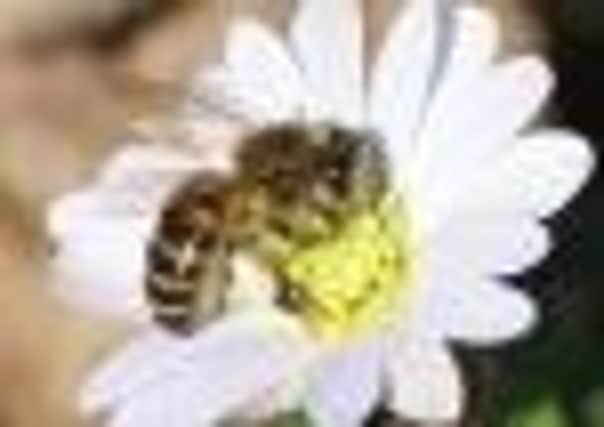LETTER: Bees vital to survival of human race


This acceleration is worse than I previously thought. The annual sea ice minimum volume in the Arctic is showing a clear trend towards zero by the end of 2015 - in other words, an ice-free ocean.
The thaw of the tundra regions is just as alarming as methane gas is 23 times more potent as a greenhouse gas than carbon dioxide. Meanwhile, our Government is planning to give tax breaks for shale gas extraction (fracking) in Lancashire. This will increase climate change. We will not reach the agreed emission reduction targets.
Advertisement
Hide AdAdvertisement
Hide AdTo show how interdependent and vulnerable we human beings are, we need only look at the bee population. Numbers in Britain and worldwide have fallen dramatically in recent years – up to 90% of feral bees in the USA. Already, three bumblebee species have become extinct. Many factors are causing bees’ decline - from habitat loss to disease and, particularly, to climate change. There is also growing evidence some pesticides harm bees. We need bees because they are essential to our food supply, economy and quality of life.
Bees pollinate 75% of our most vital crops and favourite foods. Without bees and other insects we’d also have 20% less vitamin C, 41% less vitamin A and 9% less calcium.
Without bees, it would cost UK farmers £1.8 billion a year to pollinate our crops. That’s more than it costs farmers to produce all the milk consumed in the UK every year. They are also essential to our gardens, parks and countryside. Bees and other insects help pollinate over 75% of our plants, which in turn are vital to our insects, birds and animals. Bee-friendly flowers, such as wildflower meadows, are a key source in the ecological chain of pollination.
This deteriorating situation will lead in some parts of the world, such as Africa and India, to drought and starvation. Hordes of people will be forced to migrate in a struggle for survival.
Advertisement
Hide AdAdvertisement
Hide AdAlbert Einstein, the eminent ethical scientist, showed how essential bees are to the survival of the human race. He is attributed with the statement: “If honey bees become extinct, human society will follow in four years.” To take William Shakespeare out of context from the soliloquy in Hamlet (Act 3, Scene 1): “to be or not to be, that is the question!” To put it another way: to be, bees are vital.
DAVID PENNEY
Green Party member